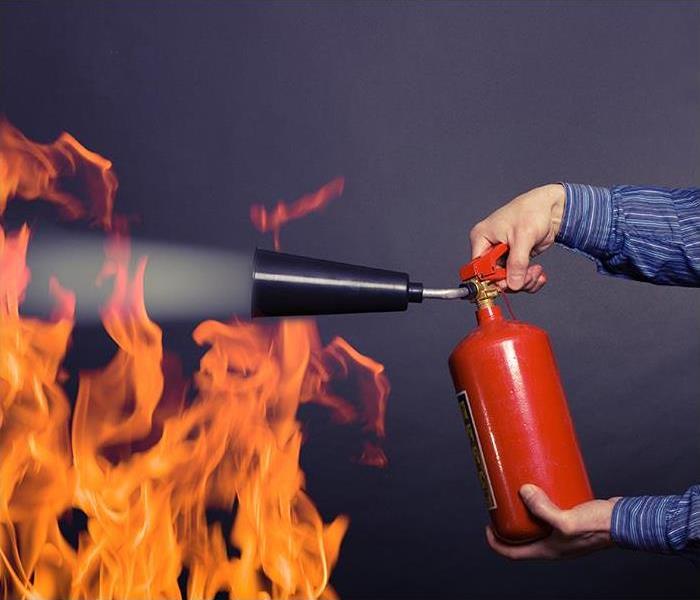5 Tips to Prepare You in Case of a Fire
4/24/2019 (Permalink)
A house fire is a disaster that is easily preventable. Every homeowner and family member should take the time to do the following to ensure fire safety.
1. Install Smoke Detectors Throughout the Home
The first step for preventing a residential fire is properly installing enough smoke detectors throughout your home. Smoke detectors should be installed on every floor of your home and close to any bedrooms. To make sure that the detectors are always in working order, you'll want to test them out once a month. Batteries in smoke detectors should be replaced once a year. Smoke detector manufacturers suggest that they should be completely replaced every 10 years. Do not disable any smoke detectors while cooking, as this can potentially result in tragedy.
2. Install Fire Extinguishers
Once you've got the smoke detectors installed, it's time to make sure that you have fire extinguishers readily available throughout your residence. These will come in handy should you experience a small fire. Using a fire extinguisher will prevent you and your family from having to battle a bigger fire. Fire extinguishers should be kept in the kitchen, garage, and any workshop areas of your home. Similar to smoke detectors, fire extinguishers should be checked regularly to ensure they are working properly.
If you are not sure about how to use a fire extinguisher, consider contacting your local fire department on training information to get you started. You'll be able to learn how to properly use and maintain it. It is also important to know that there are different types of fires and different types of extinguishers used to put them out.
3. Teach Kids About the Dangers of Fire
Let's face it, kids are curious. This is a good and bad thing, but when it comes to something life-threatening like fire, curiosity can quickly turn into danger. Over 100,000 fires are set every year by kids under 5 years old playing with lighters or matches. To avoid this from happening, it's essential to educate children about the potentially deadly consequences of playing with fire. Inform them to STOP, DROP, and ROLL if their clothes catch on fire in an emergency. Also, teach them about what firefighters do, and to not hide from them when they are in sight.
4. Create a Plan for Escape
Having a well-thought-out and organized plan is very important. Think about it. The last thing you want to do during a fire is to try and think rationally about what to do next to survive. Developing a plan for escape in advance will spare you some time (which is a huge deal during a fire).
Not only should you create a plan, but you will also want to discuss it with your family members in detail so that everyone is on the same page should a fire take place. The escape plan should include at least two escape routes from every bedroom. Everyone living at home should be familiar with basic home fire safety procedures. This includes checking doors for heat before opening them, staying low on the ground to stay out of the smoke, and knowing the closest way out. These little things can go a long way in saving lives during a blaze! Make digital copies of any valuable documents and records like birth certificates, and keep them in a safe place easily retrievable in the event a fire takes place.
In addition to creating a plan and talking about it, practice it. Fire drills are not only for grade school students. They're a good reminder for everyone of all ages.
On top of having a solid escape plan in place for yourself and your family, it's also crucial to make sure that everything at home is in working order. For example, windows should not be stuck, and if you have any window screens, they should be easily removed if need be. Use security bars? Make sure they can be opened properly.
5. Have a Family Communications Plan Set
Got the escape plan out of the way? Now it's time to plan out your family communication methods. Firstly, make sure that everyone knows how to call 9-1-1. In an emergency, it's important to ensure that everyone at home knows who to contact if they are not able to locate one another, or in any other instance. Spend some time to speak with family members about who to call and where to meet in such cases, to be extra prepared.





 24/7 Emergency Service
24/7 Emergency Service